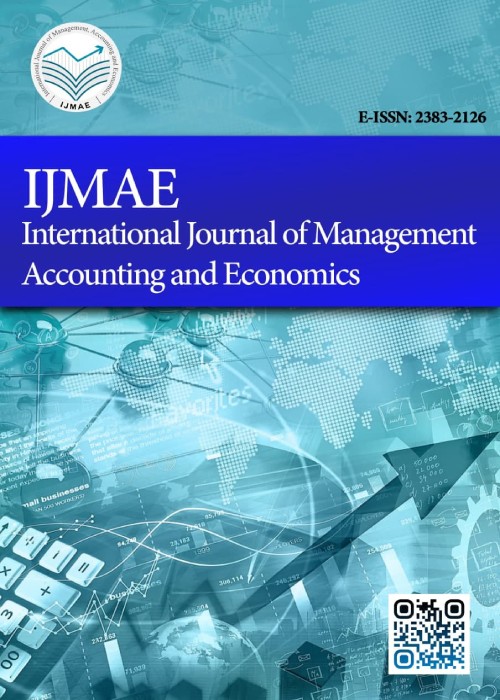فهرست مطالب
International Journal of Management, Accounting and Economics
Volume:7 Issue: 6, Jun 2020
- تاریخ انتشار: 1399/05/27
- تعداد عناوین: 4
-
Pages 242-254
This study aims to examine the effect of tax avoidance, firm size, firm age, and leverage on earnings response coefficient. The population in this study are all manufacturing companies listed on the Indonesia Stock Exchange (IDX) in 2017-2019. The sample used as a whole consisted of 97 of 165 companies with 144 observations. The results of this study use multiple linear regression analysis and indicate that tax avoidance,firm size, and leverage have a positive effect on earnings response coefficient, while firm age has no influence on earnings response coefficient.
Keywords: Tax avoidance, firm size, firm age, leverage, earnings response coefficient -
Pages 255-276
The general concern about the impact of covid-19 which was declared a pandemic by World Health Organization on businesses, livelihoods and economies is what triggered this research. The objective was to find out the impact of covid-19 on the statuses small and medium enterprises in Ghana using SME’s in the Kumasi Metropolis as the focus of study. The study adopted parameters such as revenue reduction, downsizing, reduction in demand, organizational restructuring, and fear of exiting business to assess the state of the various SME’s. Using a purposive sampling approach 120 online questionnaires were sent managers, supervisors, and business owners out of which 106 which were fully filled used for the study. The data obtained was coded and run using SPSS 26 and results used for discussions and analysis. The outcome of the study shows that the SME’s are battling to survive in the era of this pandemic as revenue reduction, downsizing, reduction in demand, organizational restructuring, and fear of exiting correlated positively to indicate the of the state of SME’s in themetropolis during this pandemic. This means covid-19 have really affected the operations of small and medium enterprises. SME’s must therefore initiate measures that would make them survive in the period of this pandemic and post covid-19.
Keywords: Global pandemic covid-19, revenue reduction, demand reduction, downsizing, organizational restructuring, fear of exiting business -
Pages 277-297
Agro business, supply chain management (SCM) means reach agro products to the market in time. The future economic prosperity of Bangladesh depends largely on the prosperity of agriculture. And the success of agriculture depends on ensuring proper supply of agricultural products to the appropriate market. The study found that about 75% of the population of Bangladesh is engaged in agriculture as their source of income. The primary purpose of this study is to analyze the overall logistics support for agro products in context of supply chain management in Bangladesh. This research are used secondary method for analyzing data and information. The author critically reviewed the supply chain management system of PRAN Agro Business Limited which is the largest agro products producer in Bangladesh. The result reveals from the study that the agro products marketing in Bangladesh scrappy supply chain system, lack of transportation facilities, higher transaction cost, multiple market intermediaries, lack of awareness and several other socio-economic problems facing agro products supply chain management in Bangladesh. Effective supply chain management helps to secure better position in the competitive environment and improve the efficiency of the agribusiness organization. Therefore, current research suggests that marketing facilities should be improved for agricultural products, especially in rural areas.
Keywords: Logistics, Agriculture, Supply chain Management, Marketing, Agro products -
Pages 298-304
An uncollected tax is a debt to the state. In Fiji, individuals’ pay income tax if they earn more than FJD$30,000 under the Income Tax Act 2015 (ITA). Thus, the purpose of this paper is to critically evaluate the stand of debt forgiveness by the lender to the borrower in the Fiji Income Tax Act 2015. Furthermore, the paper has discussed the Islamic viewpoint of debt that is forgiven. The findings indicated that Fiji looks upon the forgiven debts as income in the hand of the borrower and thus is taxed whereas the Islamic view is that such taxes should not be imposed taking into account the verse of the Quran (2:280).
Keywords: Debt Forgiveness, Tax, Legislation, Income, Gift


